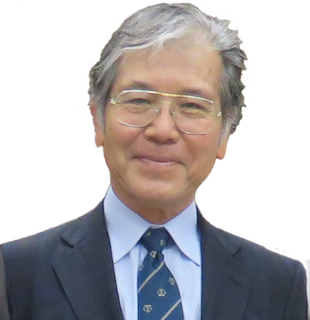TOKYO (IDN) – Poverty alleviation has been on the agenda of development cooperation since the early 1970s: Robert McNamara declared in 1973 that the World Bank’s mission is to eradicate poverty by 2000, and three years later the Development Assistance Committee (DAC), comprising world’s major donors, adopted the Basic Needs Approach. But the major challenge for the development community has been to find an effective method to provide substantial relief to the poor and deprived.
For some time, this issue was considered ideological, of a choice between growth and distribution. The last attempt at establishing a policy framework from an ideological perspective was the DAC’s policy declaration of 1996: Shaping the 21st Century; the Contribution of Development Cooperation. SPANISH | GERMAN | HINDI | JAPANESE
Focusing on poverty alleviation, this policy was intended to respond to the prevailing political environment of the industrialized countries soon after the end of the Cold War. In the mid1990s, social democratic parties, favouring the so-called Third Way, ruled over 10 countries from among 15 European Union (EU) members, seeking to charter a way somewhere between free-market capitalism and state socialism.
In the United States, the leftist Democratic Party presidency of Bill Clinton was attending annual third way party congresses in Europe. Japan, a top donor of official development assistance (ODA), was at that time headed by socialist Prime Minister Tomiichi Murayama, in the framework of a coalition government.
The ODA community tried to make their policy as relevant as possible to the political trend and to secure their part of the budget in each country. However, before the end of the decade, the political environment turned to the conservative side in practically all the major industrialized countries, thus making the DAC policy irrelevant.
DAC’s Declaration was given to the United Nations, which had to prepare the draft of a declaration on the Millennium Development Goals (MDGs) to be adopted at the summit in the year 2000. However, the MDGs were an ill destined carbon copy of the DAC declaration from the very start.
However, a series of the 9/11 terrorist attacks of 2001 – including those on the World Trade Centre in New York – suddenly changed the political response of the conservative governments of industrialized countries to development cooperation.
They decided that the root cause of international terrorism is poverty. Therefore, it is vital that the focus of development cooperation is shifted to poverty alleviation. MDGs were recognized by even the conservative governments as an important tool to fight against terrorism in 2002. Since then, poverty alleviation has been accepted as a broad-based policy objective, not an ideological issue, at the international level.
Various attempts have been made in earnest in the international development community to alleviate, and if possible, solve the problem of poverty in practical terms. DEVNET Japan has been elaborating its approach to this question with this historical context in mind.
DEVNET Japan’s approach is to acquaint poor and yet potentially talented young people in the least developing countries with essential knowhow available in industrially advanced countries and to provide them educational and financial added values so as to enable them become developmental engines in their own countries in a sustainable manner.
DEVNET Japan will focus the first concrete actions on Lao PDR. The Laotian counterpart will identify young people who will be trained in their own country in such a way that they will be able to adjust themselves to the Japanese situation.
DEVNET Japan, which has been authorized to work with local firms and farms in a large part of Japan, will educate these young people further so that they will qualify to be trained in local firms or farms. It will find appropriate training places for each one of them.
DEVNET Japan will ensure that the trainees acquire not only skills and knowhow but also some financial base, which would support them in Lao PDR by way of making arrangements so that they might be either employed in suitable firms or farms, or might even start new businesses.
The cost of this scheme will be shared by all the stakeholders so that it turns out to be self-sustaining. DEVNET Japan has been building up a number of components that are required to organize this scheme and is confident that it will become operational in due course. An evaluation mechanism will be integrated in this system so that it will be constantly improved.
This mechanism will be expanded to other countries. Over a period of time, such an approach will be recognized as the DEVNET Approach to Poverty Alleviation as the most pragmatic endeavour in the post-ideological age. An amalgamation between the civil society and business – where the public sector (national and international) will play a supplementary role – to deal with the most difficult global issues may pave the way to a 21st century type of international development cooperation.
*Prof. Kazuo Takahashi is a member of the Board of DEVNET Japan, former Economist at the Headquarters of OECD in Paris, Director of FASID-Foundation for Advanced Studies on International Development, Visiting Professor of United Nations University, Visiting Professor at University of Tokyo, Professor at the International Christian University, and Board member of JAUNS-Japan Association for United Nations Studies. (11 January 2016)
This article is part of IDN’s media project jointly with Global Cooperation Council and DEVNET Japan.

